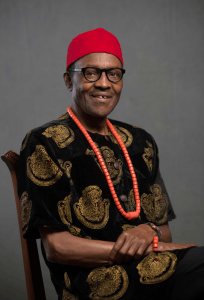Why Buhari Missed APC NEC Meeting: The Inside Story
By Ricky Awodi
The absence of former President Muhammadu Buhari at the All Progressives Congress (APC) National Executive Committee (NEC) meeting held in Abuja on Wednesday has sparked speculation within political circles. While some attributed it to political maneuvering, Buhari’s spokesperson, Malam Garba Shehu, has come forward with an official explanation.
The high-profile meeting, presided over by President Bola Ahmed Tinubu, was attended by Vice President Kashim Shettima, APC National Chairman Dr. Abdullahi Umar Ganduje, governors, members of the National Working Committee (NWC), and other key stakeholders. However, the absence of Buhari, alongside former Kaduna State governor Malam Nasir El-Rufai and former Minister of Transportation Rotimi Amaechi, raised eyebrows.
Late Invitation Cited as the Reason
Speaking to BBC Hausa, Shehu clarified that Buhari’s absence was purely logistical. According to him, the former president received his invitation on short notice, making it practically impossible for him to travel from his hometown, Daura, to Abuja in time.
> “President Muhammadu Buhari is not a caucus member of the party. He was supposed to attend the NEC meeting, but unfortunately, the invitation reached him only a day before the event. Even if he owned a private jet, he could not have made it in time,” Shehu stated.

Buhari’s Commitment to APC Remains Strong
Despite his physical absence, Shehu emphasized that Buhari remains an integral part of the APC. He reminded Nigerians that Buhari played a crucial role in founding the party and has contested under its platform twice, winning both elections in 2015 and 2019.
> “Buhari may not have been physically present, but his spirit was with the attendees. He is and will always be a dedicated member of the APC,” Shehu added.
Political Undercurrents Behind Buhari’s Absence?
While the official reason given is a late invitation, some political analysts view Buhari’s absence from the NEC meeting as indicative of a deeper disconnect between the former president and the current APC leadership. In recent months, there have been reports of internal power struggles within the party, with some factions aligning more closely with President Tinubu, while others remain loyal to Buhari.
Additionally, the absence of other notable figures like El-Rufai and Amaechi—both of whom have had strained relations with the current administration—further fuels speculation that political dynamics may have played a role in their nonattendance.
Implications for APC’s Unity
The APC, which has been battling internal divisions since Tinubu assumed office, faces growing concerns about its unity ahead of future elections. The NEC meeting was expected to serve as a platform to strengthen party cohesion, and Buhari’s absence—whether logistical or political—raises questions about the effectiveness of such reconciliation efforts.
If the former president continues to distance himself from key party activities, it could signal a shift in APC’s internal structure, potentially affecting its strategy and leadership dynamics in the coming years.
Conclusion
While Buhari’s spokesperson has provided a straightforward explanation for his absence at the APC NEC meeting, political observers remain skeptical. Was it truly a matter of late notice, or does it reflect a subtle disengagement from the party’s current leadership? Regardless, Buhari’s legacy within the APC remains significant, and his future involvement—or lack thereof—will be closely watched as Nigeria’s political landscape continues to evolve.


